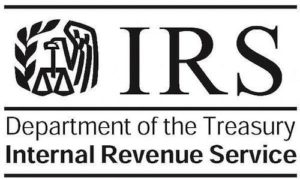Few Americans have kind thoughts about the IRS around tax time. But—looking on the slightly brighter side—things could be a lot worse.
As long as you file on time, the IRS won’t pile on additional penalties—just interest. Don’t delay filing even if you can’t pay up front. The IRS will charge interest on any money you owe—6 percent a year, or .05 percent a month—but if you file on time you’ll can avoid paying an additional penalty of 5 percent a month on your debt.
The IRS does offer payment options.
You can pay by check, money order, cash (at an IRS approved partner) or by debit or credit card. (You will pay a flat fee of under $3 if you pay by debit; for a credit card payment, you’ll have to pay a fee of about 2 percent.)
If you owe less than $50,000, the IRS lets you set up installment plans online. But you will pay a fee for this convenience. It costs $107, for example, to set up a direct debit payment plan.
The IRS may be willing to compromise on what you owe—and it’s been more lenient in the past few years.
If the IRS doubts your ability to repay your debt now or in the foreseeable future and/or if paying your tax bill would cause an economic hardship, you might qualify for an Offer in Compromise (OIC).
Forbes magazine reports that for decades the IRS only accepted about 25 to 30 percent of taxpayers’ OIC requests. But between 2012 and 2014, the number of OICs accepted rose to around 40 percent.
The IRS actually takes a smaller bite of our income than tax collection agencies in many other countries.
Although we complain about our high taxes, the truth is that we pay a lot less than many other developed countries. According to the Tax Policy Center, total US tax revenue equaled about 26 percent of gross domestic product (GDP) in 2014. The average for developed countries is 34 percent. Denmark tax revenue is equivalent to almost 50 percent of the country’s GDP.
The money that the IRS collects funds some essential government services.
Even if you don’t like big government, you have to acknowledge that our taxes go to support important government services such as defense, infrastructure, Social Security and Medicare and law enforcement.

